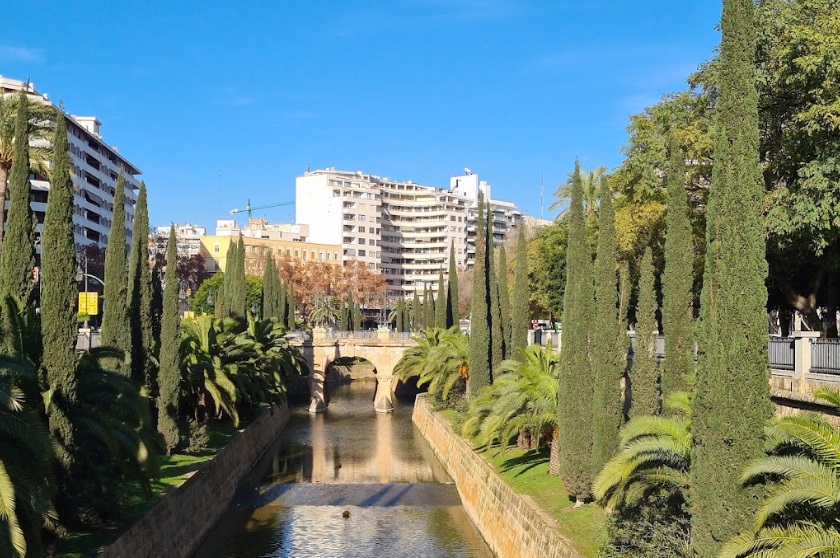History, language and culture in Mallorca: what language is spoken
The official languages of Mallorca are Spanish (also called Castilian, one of the various dialects of Spanish used in central and northern Spain) and Catalan. The local Mallorca Catalan dialect is called Mallorquin and depending on the area, the dialect may vary slightly. We will not talk about majorca religion, let's talk about what language is spoken in mallorca.
History of the Mallorca language
In terms of language, Mallorca's inhabitants belong to three groups: Procatalan, Anti-Catalan and those who could not decide. Today, the third group is the most numerous and more loyal to the other languages. The first group tends to fully integrate with Catalonia, with which they have the same language. During the dictator Franco, some Catalan adherents had to spend a long time in exile. Now, they are actively expressing their own opinions at various conferences devoted to the language issue, demanding more television programmes in Catalan and funding for events that promote their language and cultural characteristics.
Opposition groups, anti-Catalans, sometimes respond to such statements. There had been instances of vandalism of Catalan symbols, even an attack on a Catalan television station. This is due to the long-standing ban on the use of the Catalan language in Mallorca - there are many followers of the Castilian language. But in fact, many of those who passed their school exams under the Franco Rule are quite difficult to speak and write in their native language. For this reason, none of the five newspapers that come out in Mallorca use Catalan. It’s a part of the Mallorca history.
Language and politics
The debate over language has already moved into the political arena, especially after José Ramón Bauza, president of the ruling Partido Popular party, began taking a number of measures aimed at reducing the importance of the Catalan language in Mallorca.
Part of the election program of the Partido Popular party was devoted to the problems of free choice by parents of the language of education for their children. Obviously, this issue has become very important in recent times, especially given the difficult economic situation.
In March 2012, José Ramón Bauza stated that knowledge of the Catalan language is no longer a requirement for admission to public service. Since then, thousands of people have taken to the streets of Palma de Mallorca to protest against the existing policy of discrimination against Catalan - "Sí a la nostra llengua".
A number of municipalities, in particular Manacor, Inca and Alcudia, have opposed José Ramón Bauza's initiative by approving Catalan as the mother language of all inhabitants who speak it. A number of schools, kindergartens and even higher education institutions have also opposed the Government's existing policy, notably the Linguistics Department of the Balears University ("Universitat de les Illes Balears"). It seems that the language issue remains a rather hot topic for Mallorca residents.
The language you hear in the streets of Mallorca is likely to be a kind of Catalan that combines the different features of Spanish and French, but it sounds different from both and can be considered a full language, not just a dialect of Spanish. Trying to speak Catalan you will certainly win the hearts of locals, but communication in Spanish is also widespread.
Information for tourists
The capital of the island is Palma de Mallorca. Language is a part of majorcan culture. The island has two official languages, Castilian (Spanish) and Catalan, while locals prefer to speak their Mallorquin dialect. However, the island's staff, including maids, speak several foreign languages. English, German and French are particularly common.
Beautiful resorts, picturesque landscapes combined with cleverly hot climate attract many tourists to the Balearic Islands. In the interior, where peace and quiet reigns, you can see wooded hills, caves, pretty villages, majestic monasteries and monuments of prehistoric period.
The Balearic Islands were alternately ruled by Phoenicians, Greeks, Carthaginians, Romans, Moors and Turks. In the 13th century, the Catalan settlers brought their own language, which the locals still speak today.
Mallorca is the largest and most popular island among tourists. The embankment of its main city, Palma, is decorated with a magnificent Gothic-style cathedral.
The fertile plains of the central area replace the Alpine peaks of Tramuntana. The mild climate and beautiful beaches have turned Mallorca into a Mecca for tourists. The island is famous for its historical and architectural attractions, such as Palma Cathedral. Mallorca also has crops and fruits grown on the central plains and vineyards in the Binissalem area play an important role in the local economy.
All staff on the island, including maids, speak several foreign languages. English, German and French are particularly common. Mallorca is particularly famous for the fact that it is here in the Castle of Mariwent the entire royal family stays every August. At this time a sailing regatta is held with their participation in the King's Cup, and in the Castle of Almudaina are the official receptions of the kings of Spain. That’s a part of history of Mallorca.
The island is very picturesque. There are long sandy beaches (in Arenal), spacious bays (in Santa Ponsa), and green cozy coves (Cala Grande, Cala Ferrera). The southern part of Mallorca is hotter and drier, with the most beautiful beaches on the island: Sas Kuvetas and Es Trenc, as well as the beaches of Mondrago, Figuera Bay and Santa Maria Bay. The rest of the resorts are located on both sides of Palma bay.
Southeast of it are Arenal, Playa de Palma and Can Pastille. Mostly German tourists rest here. These three tourist areas are united by a common five-kilometer long beach, the longest in Mallorca. Every 700-800 meters on the beach there are "balneario": a small bar, plus changing rooms and toilets. Behind the strip of beach there is a cobbled pedestrian promenade with tall palms on both sides. There are numerous shops, restaurants and bars along it. All three resorts are connected to the capital by several bus routes.



